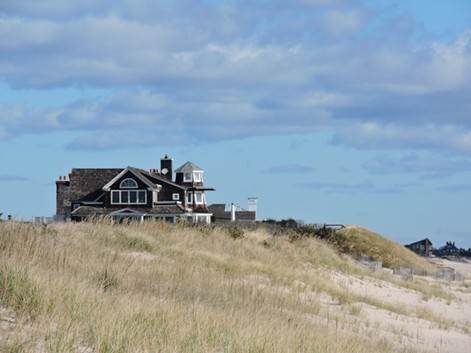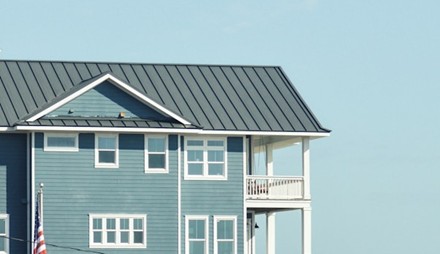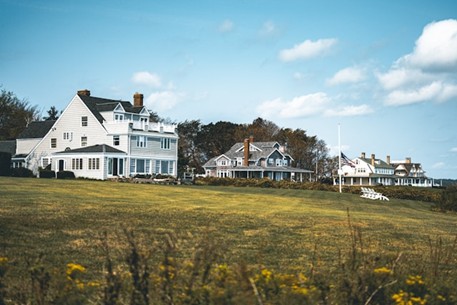
Summer is all about vacations, relaxation, and making unforgettable memories with family and friends. For many, renting a vacation home for the season seems like the perfect choice, offering flexibility without the long-term commitment of ownership. However, with rental prices steadily increasing, more vacationers are starting to wonder if purchasing a summer home is a smarter financial move, especially when considering the potential for rental income.
If you've ever weighed the pros and cons of renting versus buying, this guide will help you navigate the key financial factors, long-term advantages, and potential revenue opportunities that come with owning a vacation property. If you're looking at OCNJ homes for sale or considering other New Jersey hotspots, understanding the financial benefits of ownership can help you make the best decision for your future summers.
The cost of renting a summer vacation home along the Jersey Shore can vary widely based on the town, proximity to the beach, and available amenities. Popular destinations like Ocean City, Avalon, Stone Harbor, and Long Beach Island see rental prices skyrocket during peak summer months, with demand far outweighing supply.
Rental prices for vacation homes along the Jersey Shore can vary significantly based on location, property size, and amenities. Here's a breakdown of the current market:
In prime locations like Ocean City, some beachfront properties are listed at approximately $20,000 per week during peak summer months.
While specific monthly rates can vary, properties in sought-after areas often have high weekly rates, which can accumulate to substantial monthly costs.
Some ultra-luxury properties command premium prices. For example, a six-bedroom home in Sea Spray, Long Beach Island, offered a rate of $18,000 for the week of August 19th - 26th.
It's important to note that while these high-end properties can command significant rental fees, the market has seen adjustments. Some owners have reduced prices to fill vacancies, indicating a shift in demand and pricing strategies.
These costs add up fast. If you’re renting for several weeks each summer, you could easily spend $30,000 to $50,000 per year on temporary stays. Over a decade, that’s $300,000 to $500,000 spent with nothing to show for it in the long run. For many, this realization sparks the question: Is it time to invest in a summer home instead?
Renters also face the uncertainty of market fluctuations. Rental prices often increase year over year, and availability can be unpredictable, especially in high-demand areas. Many desirable properties book months in advance, leaving last-minute vacationers with fewer choices and higher costs.
Purchasing a summer home is a significant financial decision, but it can provide long-term benefits, including potential passive income. Let’s explore the costs involved and the financial advantages of ownership.

Buying a vacation home typically requires a substantial upfront investment, including:
Down payment: Usually 10% to 25% of the purchase price.
Closing costs: Typically 2% to 5% of the home's price.
Property taxes and insurance: Vary by location but can range from 1% to 3% of the home’s value per year.
Mortgage payments: Depend on the loan amount, interest rate, and term.
If you purchase a $500,000 vacation home with a 20% down payment ($100,000), your estimated monthly mortgage payment (at a 6% interest rate for 30 years) would be around $2,400 to $2,800 per month—or roughly $30,000 per year.
Beyond the mortgage, homeowners must budget for:
Utilities and maintenance: $3,000 - $10,000 per year.
HOA fees (if applicable): $100 - $500+ per month.
Property management (if renting out): 10% - 20% of rental income.
While these expenses may seem high, they can be mitigated by generating rental income during peak seasons.
One of the biggest advantages of owning a vacation property is the ability to rent it out when you're not using it. Many homeowners find that renting their property for just part of the summer can significantly offset ownership costs or even turn a profit.
Let’s say you own a home in a popular summer destination and decide to rent it out:
High-demand weeks (July & August): $4,000 per week.
Shoulder season (June & September): $3,000 per week.
Potential peak season earnings (10-12 weeks): $30,000 to $50,000.
Even after accounting for property management fees and maintenance, a well-located vacation home can generate substantial rental income, covering mortgage payments and other costs.
Owners have the flexibility to choose how and when they rent out their property, depending on their financial goals and level of involvement. Short-term vacation rentals typically command higher nightly rates, making them lucrative during peak seasons, but they require more hands-on management, frequent guest turnovers, and ongoing maintenance.
On the other hand, seasonal or monthly rentals provide a more stable and predictable income stream with less day-to-day oversight. Choosing the right rental strategy depends on factors like location, demand, and the owner's willingness to manage bookings and property upkeep.
Beyond passive income, vacation homes often appreciate in value over time, making them a strong long-term investment. Many desirable markets have experienced annual appreciation rates of 5% or more, allowing homeowners to build equity while enjoying their property.
A $500,000 home appreciating at 5% per year could be worth approximately $800,000+ in a decade, resulting in a gain of over $300,000. When compared to spending $30,000 per year on vacation rentals with no return on investment, the financial benefits of ownership become even more apparent.
Additionally, owning a rental comes with several tax advantages. Homeowners may be eligible for mortgage interest deductions if the property is classified as a second home. If the property is used as a rental, they may also benefit from depreciation and expense write-offs, as well as property tax deductions, depending on state regulations.
Investors looking to grow their real estate portfolio can take advantage of 1031 exchanges, which allow them to defer capital gains taxes when selling one property to purchase another. Consulting a tax professional can help homeowners navigate these benefits and maximize their financial return.

✔ No long-term financial commitment.
✔ No responsibility for maintenance or property management.
✔ Flexibility to vacation in different locations.
✘ High rental costs add up over time.
✘ No return on investment.
✘ Uncertain availability and increasing prices.
✔ Builds equity and potential appreciation.
✔ Generates rental income to offset costs.
✔ Provides a personal vacation spot year after year.
✔ Tax advantages for rental properties.
✘ High upfront and ongoing costs.
✘ Market fluctuations can affect property value.
✘ Requires management if renting out.
If you enjoy getting away in the same location every year and can afford the upfront costs, buying a vacation home can be a smart long-term investment, especially if you plan to rent it out during peak seasons. Over time, rental income and property appreciation can significantly outweigh the costs of ownership.
Ultimately, the decision comes down to financial goals, lifestyle preferences, and your willingness to take on property management responsibilities. By carefully weighing the costs, potential income, and investment benefits, you can make the choice that best suits your needs.